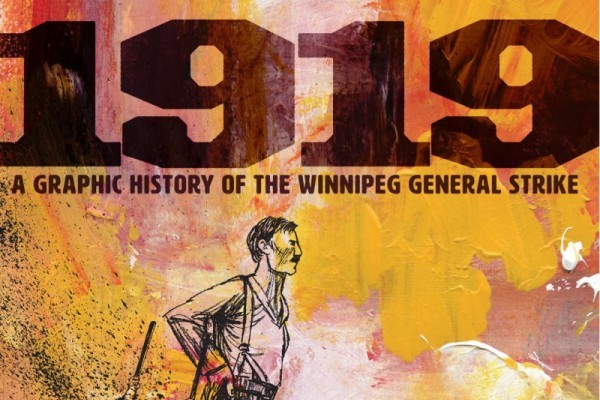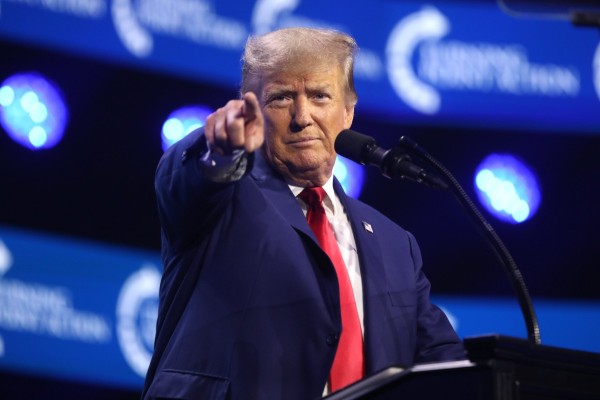WE Charity and the white saviour complex
Lost in the palace intrigue of the WE scandal is a critique of the pernicious racial politics of the charitable industry

Craig and Marc Kielburger at We Day Atlantic in Halifax, Nova Scotia, 2016. Photo by Glenn Euloth/Flickr.
Lost in the palace intrigue of the Trudeau government’s WE scandal is a critique of the pernicious racial politics of the WE Charity, as well as aspects of the wider charitable industry. Although the controversy comes during a moment when structural racism has been centred in public discourse, accusations of racism within WE have been marginalized, as have discussion of the way WE—and its founders Craig and Marc Kielburger—gained such influence within Canadian schools, media, and politics as models of white saviourism.
The controversy surrounding the Canadian government’s now cancelled agreement with WE has raised questions about the ethics and efficacy of WE’s voluntourism business. Most of the reporting, however, has produced the narrative of a charity, long revered as empowering youth in Canada and in the Global South, that has somehow become corrupt. Investigations have focused on the complex and confusing structure of the multitude of for-profit and not-for-profit entities that make up WE, the organization’s acquisition of prime Toronto real estate, or the Kielburger’s lack of accountability to the WE Charity board.
While some of these revelations are new, the seeds of this criticism go back a decade. The mainstream media did not follow up on Canadaland’s investigations of WE until last month, when the scandal was used to feed a story shaped by partisan politics. In part, this reflects the fact that most legacy media outlets in Canada have struck formal partnerships with WE, providing celebratory coverage of its flagship WE Day and a platform for the Kielburgers.
For many Canadians, the criticism of WE and the Kielburgers appears cynical. The prime minister is the most prominent of those who have cautioned against sullying the name of an organization that does so much good in the world. Finding out what good WE actually does, however, is rather difficult. Indeed, the corporate media has ignored WE’s operations in the Global South, failing to investigate accusations of corruption, threats, and abuse in WE Charity’s Kenya office.
Instead we get platitudes. For instance, CBC pundit Amanda Alvaro, who extolled WE’s role in teaching empathy to Canadian youth, also claimed that the charity “created communities” in Kenya, explaining they would not be “functional” without WE. This rhetoric overtly echoes white supremacist colonial ideals, constructing Africans (and other racialized groups) as ignorant and incapable of building up their own communities without the assistance and goodwill of white humanitarians. So far, Alvaro’s comments have received little rebuke, in part because they are only less carefully worded expressions of the humanitarian sentiment normal in the appeals of organizations like World Vision and Partners in Health.
White saviourism is not simply a personality trait that critics can attribute to the Kielburgers or voluntourists alone. In his explanation of the “white savior industrial complex,” Teju Cole does not distinguish between genuine humanitarians and self-seeking ones, but focuses on the construction and material causes of global poverty. Cole explains that the white saviour looks at places like Africa and sees only desperation, consequently failing to understand why the misery exists in the first place.
The white saviour complex constructs poverty as natural, hiding the histories and neocolonial structures that produce suffering in the Global South, including displacement, exploitation of labour and land, debt, unfair trade policies, neoliberal austerity programs, and ecocidal development projects. As Yves Engler recently wrote in Canadian Dimension, Canada is complicit (if not directly involved) in these ongoing imperial relations, and WE functions to mask this complicity. In this way, material injustices are framed as a flashpoint for compassion and care, not for the unmaking of structures and policies that perpetuate poverty and inequality. WE targets privileged Canadian kids specifically, inspiring them to “give back,” and affirms at every turn that their ability to “make a difference” is simply a result of fortune. This mindset is fundamental to maintaining global racial capitalism.
Not surprisingly, understanding global inequality through the lens of racialized pity manifests in structural racism within humanitarian NGOs. While the CBC reported on accusations of racism made by former WE employee Amanda Maitland, Canadian news media has largely avoided investigating the concerns raised by AntiRacistWE, an activist group created by former and current employees who are demanding “accountability and anti-racist action” at the organization.
Similarly, while cogent arguments have been made justifying the payment of Margaret Trudeau for presenting at various WE Day events, the failure to compensate Black speakers for their labour and knowledge has been reported, but has not yet prompted further investigation.
The Kielburgers published a number of statements committing to challenge racism, though they only acknowledged—using the passive voice—that “structures and people are impacted by unconscious bias and that we are not immune to the multigenerational systematic racism inherent in our global community.” The emphasis on “unconscious bias,” with its presumption of a lack of intention or will, sidesteps some of the specific accusations about WE policies and administrative decisions that AntiRacistWE presented in their petition. What’s more, it ignores the long history of critique of corporate-driven international development as white supremacist and neo-imperial.
It is not simply ironic that an organization that has been doing human rights work for 25 years and that has been contracted to provide “diversity and inclusion” training in Canadian schools has a problem with structural racism. Rather, it reflects, as Sunera Thobani explains, the way the very ideals of tolerance and cosmopolitanism (empathy and humanitarian care) are tied to whiteness.
In his 2012 feature on MTV Cribs, Craig Kielburger, clad in a tight t-shirt, is the focus of the camera’s gaze, as he provides a tour of a Me to We complex in Kenya. The video provides multiple images of sunsets and animals. Craig remarks on being in the “middle of nowhere Africa.” The Kenyan staff speak and act only on Craig’s command. Interactions with a Maasai warrior open and conclude the tour. Craig is the focus, the humanitarian informant: he explains to the viewer the Maasai’s difference and essence, but he is also positioned as native, taking a swig of cow’s blood for spectacular effect, and asserting the authority to speak of and for Africa. The description of the complex plays on contrasts with what the presumed viewer in North America takes as normal at the same time that it is shameless in its detailing of extravagance. This paradox between the plenty of the WE experience, behind the protective gates, and the plight of the unseen poor provides another example of “unconscious bias.”
Although designed to be edgy and cool, the video repeats to a new generation the key tropes of both the humanitarian appeal and the European colonial travelogue. Indeed, it is like the producers read Binyavanga Wainana’s How to Write about Africa as a guide rather than satire.
The Kielburgers’ performance before the House of Commons Finance committee in July may have been read as entitled, but it is precisely Craig Kielburger’s brash confidence—for instance, as a teenager shaming then prime minister Jean Chrétien into a meeting about child labour—that has produced his celebrity. He epitomizes the ideal of strong yet compassionate straight white masculinity that Daniel Coleman describes as white civility. What is now being read as smarmy are the same character traits that lead to all the accolades bestowed on him, from honorary degrees, to the naming of a high school, to his profile at the Canadian Museum of Human Rights.
The current political scandal was not necessary for raising questions about the work of WE in Canadian schools or Kenyan communities. We did not need investigative reporters to uncover the way WE Day functioned to provide corporations an ethical “halo” and easy access to an impressionable youth market. Teachers and academics have been critiquing WE for years.
In an historic moment when racism is at the fore in public discourse, the credibility of the Kielburgers and the so-called ‘WE Movement’ is in jeopardy—not because there is recognition that humanitarian work continues to reflect colonial racism and exalt whiteness, but because the organization’s credentials as a noble, white saviour have been tarnished.
WE is being vilified for veering from its noble origins, but in its overseas projects and its education programs in Canada, the charity is not an outlier; its work reflects the structures of racial power within these institutions. Amanda Maitland’s experience as a Black educator working for WE reflects how Canadian schools manage and control Black bodies and Black knowledge. Similarly, structural racism within Doctors Without Borders has recently come under scrutiny.
WE’s corporate partners are taking flight to protect their brands, and if school boards sever ties with the charity it will not be done as a commitment to anti-racism and decolonization, but because the relationship is no longer publicly tenable.
The frenzy to uncover WE’s many serious problems is dissipating before it begins to grapple with racism, revealing just how hollow were the PR statements from corporations and educational institutions in June. The fact that WE believes the best public relations move they can make is to promise to restructure and prioritize its international development work reveals the way the controversy may, indeed, help to reaffirm white saviourism.
David Jefferess is a settler-situated scholar, who lives and works in unceded Syilx/Okanagan territory, teaching at UBC’s Okanagan campus. His research focuses on the construction of white benevolence in humanitarian discourse. He first published a critique of WE and the Kielburgers in 2012. Follow him on Twitter @DavidJefferess.










